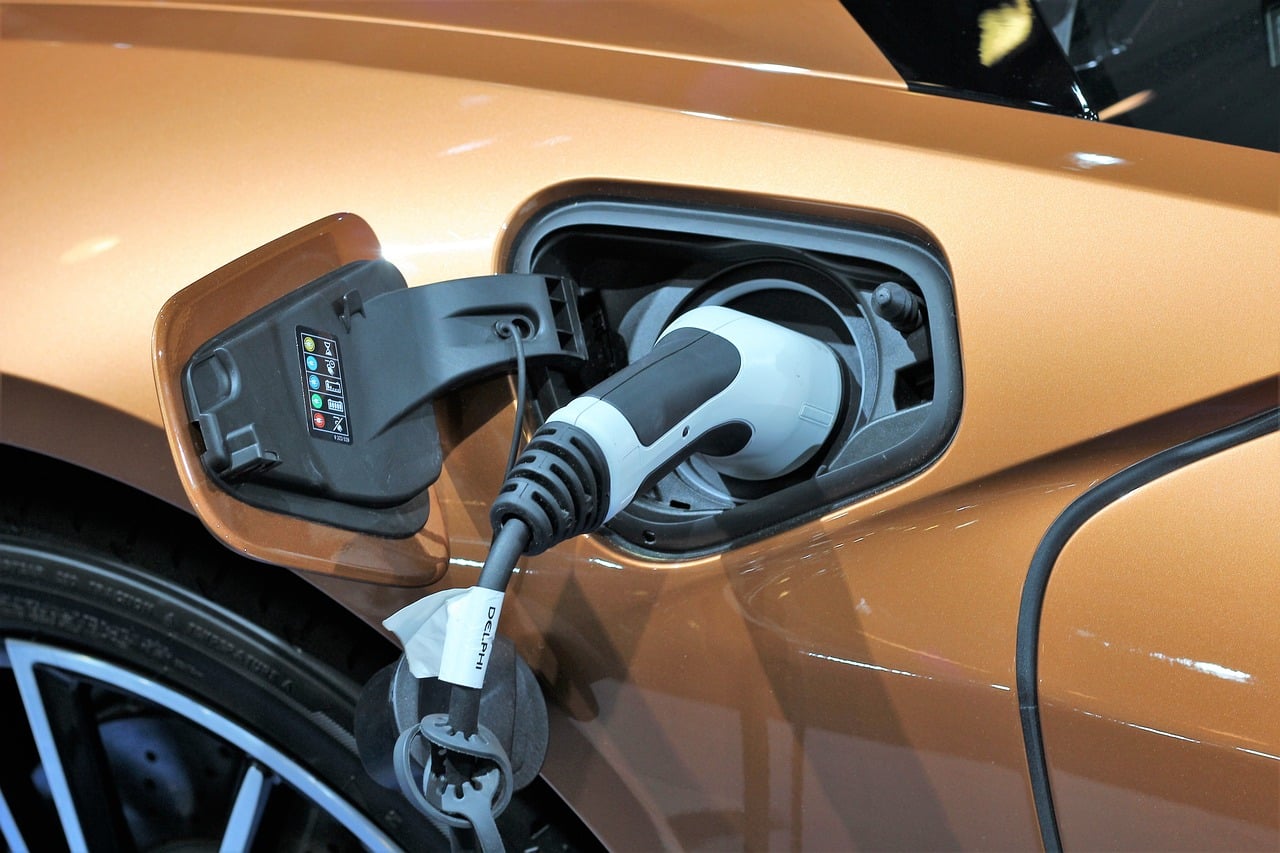Alabama Making Big Moves to Grow its EV Charging and EV Industry
Alabama is spending millions of dollars to expand its EV charging station infrastructure. Officials say this not only supports the needs of the state’s electric vehicle owners, but also promotes the growing EV industry in Alabama. The US Department of Energy’s vehicle registration counts of all-electric vehicles by state during the fourth quarter of 2023 showed Alabama as one of the states that were the lowest in EV registrations, at 11,831.
Expanding charging infrastructure is crucial for supporting the increasing number of EVs on the road and fostering growth in the EV industry. By investing in charging stations, Alabama is addressing a key barrier to EV adoption—charging convenience. This expansion can lead to several benefits:
- Increased EV Adoption: More charging stations make it easier for residents and businesses to own and operate EVs, contributing to higher adoption rates.
- Economic Growth: Supporting the EV industry can create jobs and stimulate economic development, attracting automotive manufacturers, suppliers, and technology companies to the state.
- Sustainability Goals: Enhanced charging infrastructure aligns with environmental goals by encouraging cleaner transportation options and reducing greenhouse gas emissions.
- Tourism and Connectivity: Improved charging networks can enhance long-distance travel and tourism within the state, as EV owners will have more confidence in their ability to travel longer distances.
- Technological Advancements: Investment in charging infrastructure often comes with advancements in technology, such as faster charging solutions and smart grid integration, benefiting the broader energy ecosystem.
Overall, Alabama’s investment reflects a strategic move to position the state as a leader in the evolving EV market and to support sustainable transportation infrastructure.

“We are invested in the automotive industry here in the state of Alabama, 45,000 workers all throughout the state,” said Kenneth Boswell, director of the Alabama Department of Economic and Community Affairs (ADECA), the organization Gov. Kay Ivey has tasked with building out the state’s EV infrastructure. “We want to make sure that we do everything to solidify those jobs.”
Boswell said the availability of EV charging stations is very important to EV owners in Alabama, as well as travelers driving through the state.
Since 2020, ADECA Awarded 44 Grants for EV Charging Stations
There is a substantial effort by Alabama under way to bolster its EV infrastructure. The grants awarded by ADECA and the NEVI projects are significant steps toward creating a more comprehensive charging network. Here are key developments:
- Existing Grants: ADECA has funded 44 grants for EV charging stations, with 30 already operational. This includes multiple cities with varying numbers of charging stations, helping to establish a base network across the state.
- NEVI Formula Program: The recent announcement of 14 projects totaling $11.2 million under the NEVI Formula Program highlights a focus on fast-charging stations along major travel corridors. This will enhance long-distance travel and improve connectivity between cities.
- Collaboration: The Alabama Clean Fuels Coalition and Alabama Power’s involvement in identifying key corridors and locations demonstrates a collaborative approach to planning and implementation.
- Private Sector Participation: The addition of EV chargers by private developers in gas stations, shopping centers, and corporate networks like Mercedes’ indicates growing support and investment in EV infrastructure from the private sector.
These efforts will likely improve the accessibility and convenience of charging for EV owners in Alabama, support the state’s growing EV market, and contribute to broader sustainability goals.
Focusing on workforce training through the NEVI program not only supports the growth of EV infrastructure but also ensures that there is a skilled workforce ready to maintain and expand this network. This proactive strategy addresses a critical need and helps build long-term sustainability for the state’s EV infrastructure.
Alabama’s slow EV adoption compared to some other states might be attributed to factors like infrastructure readiness, vehicle availability, and consumer awareness. However, the investment in charging infrastructure and workforce training is likely to accelerate adoption over time.

Alabama Clean Fuels Coalition Says EV Registrations in Alabama Increasing Fast
“EV registrations in Alabama have definitely skyrocketed,” says Michael Staley, president of the nonprofit Alabama Clean Fuels Coalition. The coalition has organized EV chapters and hosted special events around the state that are attended by EV drivers, Staley says.
“The best way for a consumer to learn about an EV is to talk to somebody that owns one and to see one and feel it and touch it. So those have been very successful. We organize a lot of those kinds of educational opportunities at farmers markets and other locations around the state where we encourage EV drivers to show off their vehicles and answer questions other drivers have about the technology,” Staley says.
Davis also said convincing most Alabamians to switch from gas-powered vehicles to EVs will take time.
“It’s not like flipping a switch where we have internal gas combustion engines and then all of a sudden now we’re going to have EVs. I think the marketplace is going to demand all of those products over transition time and each of the OEMs, based on what kind of vehicle they produce, what the fuel economy, what kind of mixed hybrids they have. It all fits into their strategic plan for a transition to electric vehicles,” Davis says.
Gov. Ivey is attempting to drive up interest in EVs through her new Drive Electric Alabama initiative.
Alabama’s EV Industry
Alabama’s impressive automotive production capacity highlights its significant role in the U.S. automotive industry. With over 1.3 million vehicles produced annually and major manufacturers like Mercedes-Benz, Honda, Hyundai, Mazda Toyota, and Toyota operating in the state, Alabama is indeed a key player.
The estimated $15 billion investment by these companies underscores the state’s importance in the global automotive supply chain. This investment not only supports the local economy but also contributes to technological advancements and job creation in the region.
“The Alabama auto industry is doing great,” says Ron Davis, president of the Alabama Automotive Manufacturers Association. “We have very dynamic OEM manufacturers in our state.
“We have suppliers that are engaging and participating in a transition to electric vehicles. We have the electric vehicle transition being planned by our OEMs. We’re positioned to continue to be successful in Alabama in the automotive industry,” he says.
South Korean auto supplier firm Samkee Corp. announced plans in February 2023 to invest $128 million in a new plant in Tuskegee. The new plant will make die-cast aluminum components for engines, transmissions and electric vehicles, primarily serving nearby Hyundai.
“For the past 25 years, the auto industry has been Alabama’s main economic engine, generating massive investment and sustained job creation in communities throughout the state,” Alabama Department of Commerce Secretary Greg Canfield says.
“The industry’s dynamic growth has elevated Alabama’s profile on the international stage and powered a surge in vehicle exports that has extended the ‘Made in Alabama’ brand globally. The impact of the auto industry on Alabama has been nothing short of spectacular, and we’re confident that’s going to continue well into the future as the EV revolution unfolds,” Canfield continued.
Alabama’s EV sector is indeed vibrant and rapidly evolving. Here’s a summary of the recent developments:
- Mercedes-Benz: The Tuscaloosa County plant has added the all-electric EQS SUV and is set to produce the EQE SUV. The new EV battery plant in Bibb County further strengthens Mercedes-Benz’s commitment to electric vehicles and local production capabilities.
- Hyundai: Hyundai is investing $300 million to assemble a hybrid version of the Santa Fe SUV and an electric Genesis GV70 at its Montgomery factory. This move highlights Hyundai’s commitment to expanding its EV and hybrid offerings.
- Hyundai Mobis: This supplier is building a $205 million EV battery plant in Montgomery, with production slated to start in 2024. The facility is expected to create around 400 jobs, supporting both Hyundai’s local operations and the broader EV ecosystem.
- Li-Cycle: The lithium-ion battery recycling plant opened in Tuscaloosa last year by Li-Cycle reflects the growing importance of battery recycling as part of the sustainable EV lifecycle. This plant will contribute to the circular economy by recycling valuable materials from used batteries.

Electric Vehicle Marketing Consultant, Writer and Editor. Publisher EVinfo.net.
Services